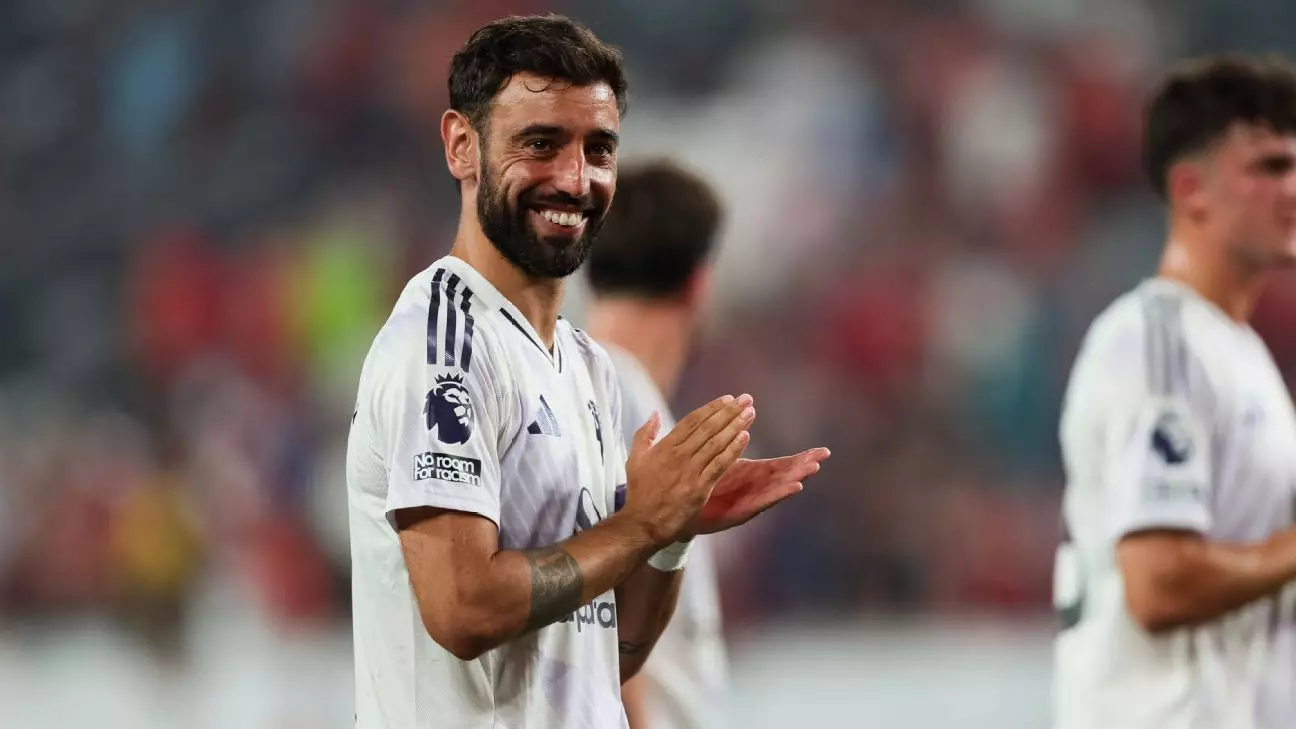The recent decision by Bruno Fernandes to stay at Manchester United underscores the importance of having a leader who embodies both courage and resilience. His choice to reject a lucrative Saudi offer speaks volumes about his loyalty and belief in the club’s potential. Fernandes is not just a talented midfielder; he acts as the heartbeat of United’s squad, influencing both their tactical shape and mental resolve. His decision reflects an understanding that true leadership requires commitment, especially when the club faces uncertainty and transition. His presence on the field boosts morale and sets a standard for both experienced players and youth prospects, making him an irreplaceable asset in the team’s long-term vision.
Transforming the Midfield: The Tactical Evolution Under Amorim
Amidst tactical shifts and evolving formations, Fernandes’s role remains central. Under Ruben Amorim’s guidance, Manchester United has embraced a flexible approach, which includes utilizing Fernandes in different roles—sometimes as a deep-lying midfielder, other times as a goal-scoring No. 10. Such adaptability highlights Fernandes’s versatility, but also reveals how crucial he is to the team’s creative engine. Amorim’s tactical decisions, such as deploying Kobbie Mainoo and Manuel Ugarte in midfield, aim to balance the squad, but Fernandes consistently emerges as the catalyst for generating chances and dictating tempo. His ability to switch between playmaking and goal-scoring responsibilities enhances the team’s unpredictability, making them formidable opponents. The emphasis on tactical flexibility also underscores Fernandes’s significance, highlighting that his influence exceeds mere statistics.
The Intangible Value: Motivation, Frustration, and Leadership Challenges
While Fernandes’s technical prowess is undeniable, his leadership qualities come with nuanced challenges. His propensity to push himself and his teammates to the limit demonstrates a fierce competitive spirit. Yet, Amorim’s insights reveal that Fernandes occasionally struggles with frustration and focus — typical traits of a player who demands excellence from himself and others. Such intensity, while beneficial, requires careful management; otherwise, it may lead to lapses in concentration or emotional fatigue. Fernandex’s willingness to play through pain exemplifies his dedication, but also hints that his leadership often comes at a personal cost. To truly maximize his potential, Fernandes must learn to channel his passion constructively, balancing ambition with composure. His evolution as a leader might ultimately determine Manchester United’s capacity to overcome obstacles and reach consistent success.
A Crucial Juncture: Keeping Fernandes at United Was Strategic, Not Just Personal
Fernandes’s extended stay at United reveals strategic foresight. The club’s decision to retain him amidst tantalizing offers reveals an understanding of his intrinsic value — not only as a player but as a symbol of the team’s future ambitions. His influence on the pitch directly correlates with United’s attacking output and overall confidence. Moreover, his leadership off the pitch galvanizes the squad during turbulent times. United’s management seemingly recognizes that losing Fernandes could have derailed their progress, especially in an era where adrenaline-fueled signings are tempting alternatives. Keeping Fernandes isn’t just about remaining competitive; it’s about safeguarding the identity and resilience of Manchester United. His role embodies the club’s ambition to reclaim its stature, making his presence in the team a vital foundation for future triumphs.
Bruno Fernandes embodies more than just technical skill; he is the embodiment of resilience, tactical intelligence, and leadership that Manchester United desperately needs to thrive. His unwavering commitment and influence underline why he remains a pivotal figure in both the squad’s immediate resurgence and its long-term ambitions.


Leave a Reply